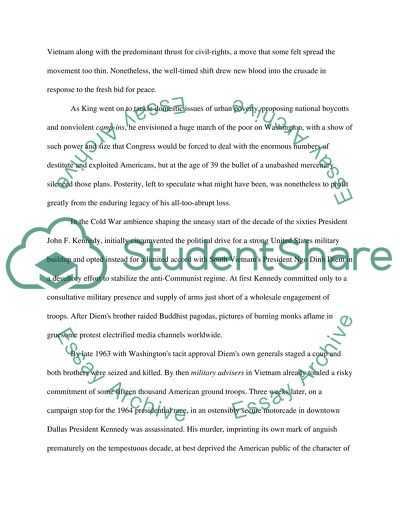Cite this document
(“The Volatile Social Upheavals of the Stormy Sixties Essay”, n.d.)
The Volatile Social Upheavals of the Stormy Sixties Essay. Retrieved from https://studentshare.org/politics/1517689-to-what-extent-did-martin-luther-king-john-kennedy-and-lyndon-johnson-contribute-to-the-stormy-sixties
The Volatile Social Upheavals of the Stormy Sixties Essay. Retrieved from https://studentshare.org/politics/1517689-to-what-extent-did-martin-luther-king-john-kennedy-and-lyndon-johnson-contribute-to-the-stormy-sixties
(The Volatile Social Upheavals of the Stormy Sixties Essay)
The Volatile Social Upheavals of the Stormy Sixties Essay. https://studentshare.org/politics/1517689-to-what-extent-did-martin-luther-king-john-kennedy-and-lyndon-johnson-contribute-to-the-stormy-sixties.
The Volatile Social Upheavals of the Stormy Sixties Essay. https://studentshare.org/politics/1517689-to-what-extent-did-martin-luther-king-john-kennedy-and-lyndon-johnson-contribute-to-the-stormy-sixties.
“The Volatile Social Upheavals of the Stormy Sixties Essay”, n.d. https://studentshare.org/politics/1517689-to-what-extent-did-martin-luther-king-john-kennedy-and-lyndon-johnson-contribute-to-the-stormy-sixties.


